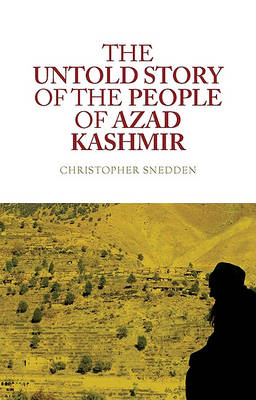Azad Jammu and Kashmir (also known as "Free Kashmir") is the southernmost political entity within the Pakistani-administered part of the former princely state of Jammu and Kashmir. Christopher Snedden offers a rare history of the territory's largely forgotten people and the conflict that continues to define their status within the nation. He contends that in October 1947, pro-Pakistan Muslims in southwestern Jammu and Kashmir initiated the Kashmir dispute, not Pashtun tribesmen invading from Pakistan, which is India's official narrative. Later named Azad Kashmiris, these people, Snedden argues, are legitimate stakeholders in this conflict and have very much inherited its legacy. Snedden critically reexamines Azad Kashmir's administrative structures, economic and political systems, and subordinate relationship with Pakistan, particularly in the years following the Kashmir dispute. Azad Kashmiris believed their administration was the only legitimate government in the region, and they expected to rule Jammu and Kashmir after its reunification by the United Nations. However, contrary to expectations, Azad Kashmir effectively, if not legally, became a (dependent) part of Pakistan.
Long disenchanted with Islamabad, some Azad Kashmiris now favor independence for Jammu and Kashmir and hope to prosper without help from their neighbors. In his conclusion, Snedden assesses different ways to resolve Azad Kashmir's international status and the outstanding claims of the Kashmir dispute.
- ISBN10 0231702507
- ISBN13 9780231702508
- Publish Date 26 June 2012 (first published 5 July 2011)
- Publish Status Temporarily Withdrawn
- Out of Print 3 April 2013
- Publish Country US
- Imprint Columbia University Press
- Format Hardcover
- Pages 416
- Language English
